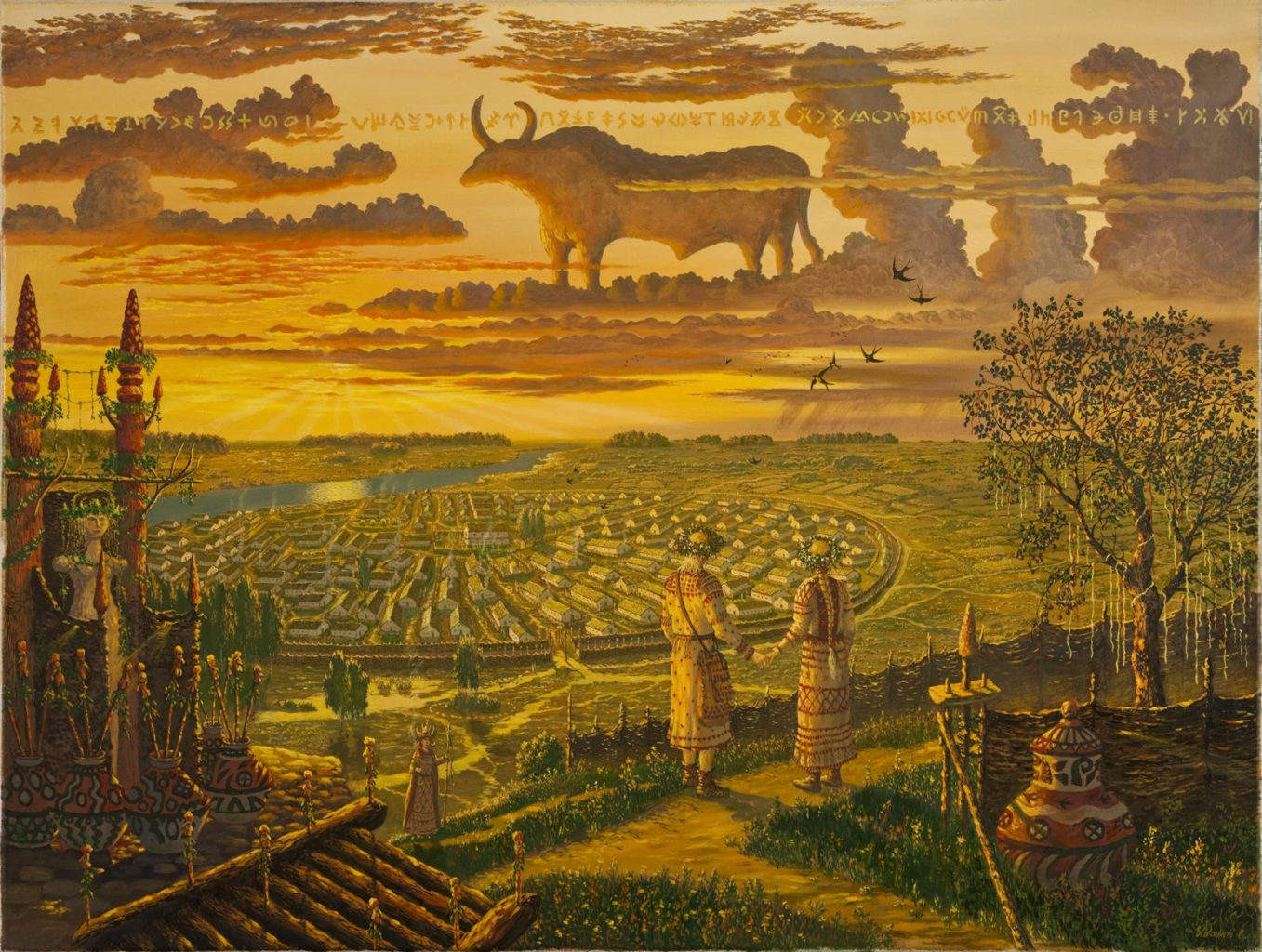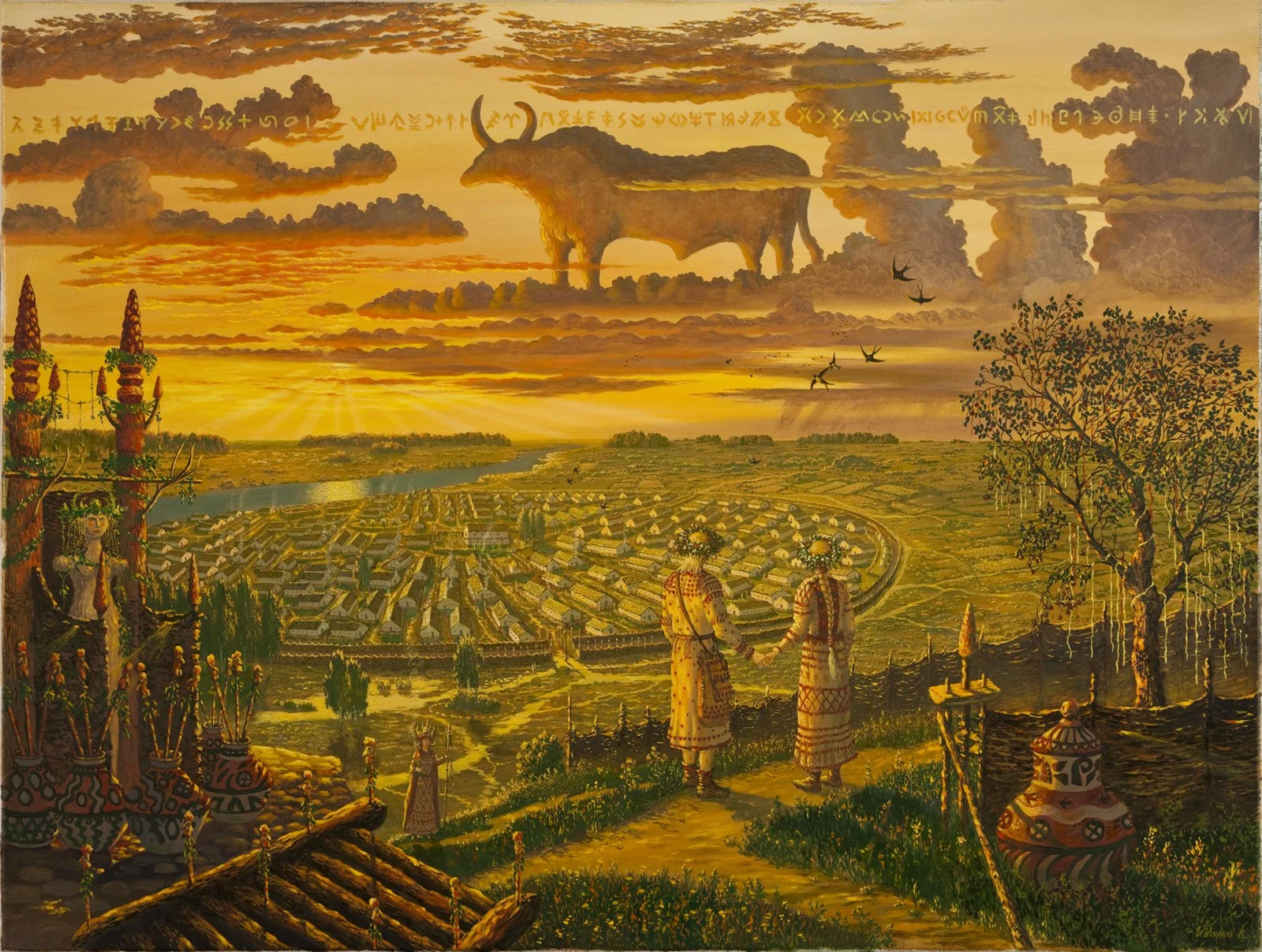
No One is First, and No One is Last: Graber and Wengrow on Ethnomathematics and Egalitarianism
 “But how did these households come together in such numbers to form the great concentric arrangements which give the Ukrainian mega-sites their distinctive plan? […] To understand how the citizens put this mental image into effect, translating it into a workable social reality at such enormous scales, we cannot rely on archaeology alone. Fortunately, the burgeoning field of ethnomathematics shows exactly how such a system might have worked in practice. The most informative case we know of is that of traditional Basque settlements in the highlands of the Pyrénées-Atlantiques. […] These modern Basque societies – tucked down in the southwest corner of France – also imagine their communities in circular form, just as they imagine themselves as being surrounded by a circle of mountains. They do so as a way of emphasizing the ideal equality of households and family units…such circular arrangements can form part of self-conscious egalitarian projects, in which ‘everyone has neighbors to the left and neighbors to the right. No one is first, and no one is last.’
“But how did these households come together in such numbers to form the great concentric arrangements which give the Ukrainian mega-sites their distinctive plan? […] To understand how the citizens put this mental image into effect, translating it into a workable social reality at such enormous scales, we cannot rely on archaeology alone. Fortunately, the burgeoning field of ethnomathematics shows exactly how such a system might have worked in practice. The most informative case we know of is that of traditional Basque settlements in the highlands of the Pyrénées-Atlantiques. […] These modern Basque societies – tucked down in the southwest corner of France – also imagine their communities in circular form, just as they imagine themselves as being surrounded by a circle of mountains. They do so as a way of emphasizing the ideal equality of households and family units…such circular arrangements can form part of self-conscious egalitarian projects, in which ‘everyone has neighbors to the left and neighbors to the right. No one is first, and no one is last.’
In the commune of Sainte-Engrâce, for instance, the circular template of the village is also a dynamic model used as a counting device, to ensure the seasonal rotation of essential tasks and duties. Each Sunday, one household will bless two loaves at the local church, eat one, then present the other to its ‘first neighbor’ (the house to their right); the next week that neighbor will do the same to the next house to its right, and so on in a clockwise direction, so that in a community of 100 households it would take about two years to complete a full cycle.
As so often there is an entire cosmology, a theory of the human condition, baked in, as it were: the loaves are spoken of as ‘semen’, as something that gives life; meanwhile, care for the dead and dying trails in the opposite, counter-clockwise direction. But the system is also the basis for economic co-operation. If any one household is for any reason unable to fulfill its obligations when it is time to do so, a careful system of substitution comes into play, so neighbors at first, second and sometimes third remove can temporarily take their place. This in turn provides the model for virtually all forms of co-operation…In other words, such ‘simple’ economies are really all that simple. They often involve logistical challenges of striking complexity, resolved on a basis of intricate systems of mutual aid, all without any need of centralize control or administration.”
The above passages come from Graber and Wengrow’s book, The Dawn of Everything, which I’m still slowly going through with my Thursday reading group. The book is full of examples and imagery like this that, from what I can gather, are meant to spark the reader’s imagination with regard to how we can alternatively structure our societies.
Accordingly, one of the very clear takeaways from the book thus far, for me, is that the orthodox belief which posits that the rise of agriculture and cities meant a plunge into hierarchy and domination must be inherently wrong and is most likely premised on a conservative European reaction to powerful critiques from Indigenous observers and intellectuals.
As far as sparking imagination goes, this account of the commune of Sainte-Engrâce and the Ukrainian mega-site definitely sparks mine. The idea of having communities laid out in circles with an emphasis on mutual aid to avoid hierarchies forming is fantastic, and knowing that this is actually a result of the ancient cosmologies that these people adhered to makes me smile for at least two reasons: 1) it’s more proof that the systems/world-views/metaphysics we subscribe to have concrete implications for how we live and organize our lives, and 2) if this is indeed the case, then it becomes so much more obvious why we currently live the way we do — as isolated, individualistic, simply located objects in space avariciously consuming and hoarding anything we can — under the sacramental political-economic system we currently all subscribe to.
At one point, upon reading the passages above and learning about how these ancient egalitarian societies organized themselves, I had the thought: ‘wow, imagine how tight-knit these communities must have been!’ Seriously though, just imagine how cool it would be to live in a neighborhood where, before you move into a new house, you’re required to meet both sets of neighbors on either side under the expectation that in order to take the best care of oneself it is absolutely vital to take care of those around you. How nice would that be?
what is your fascination with big words? speak plainly like jesus